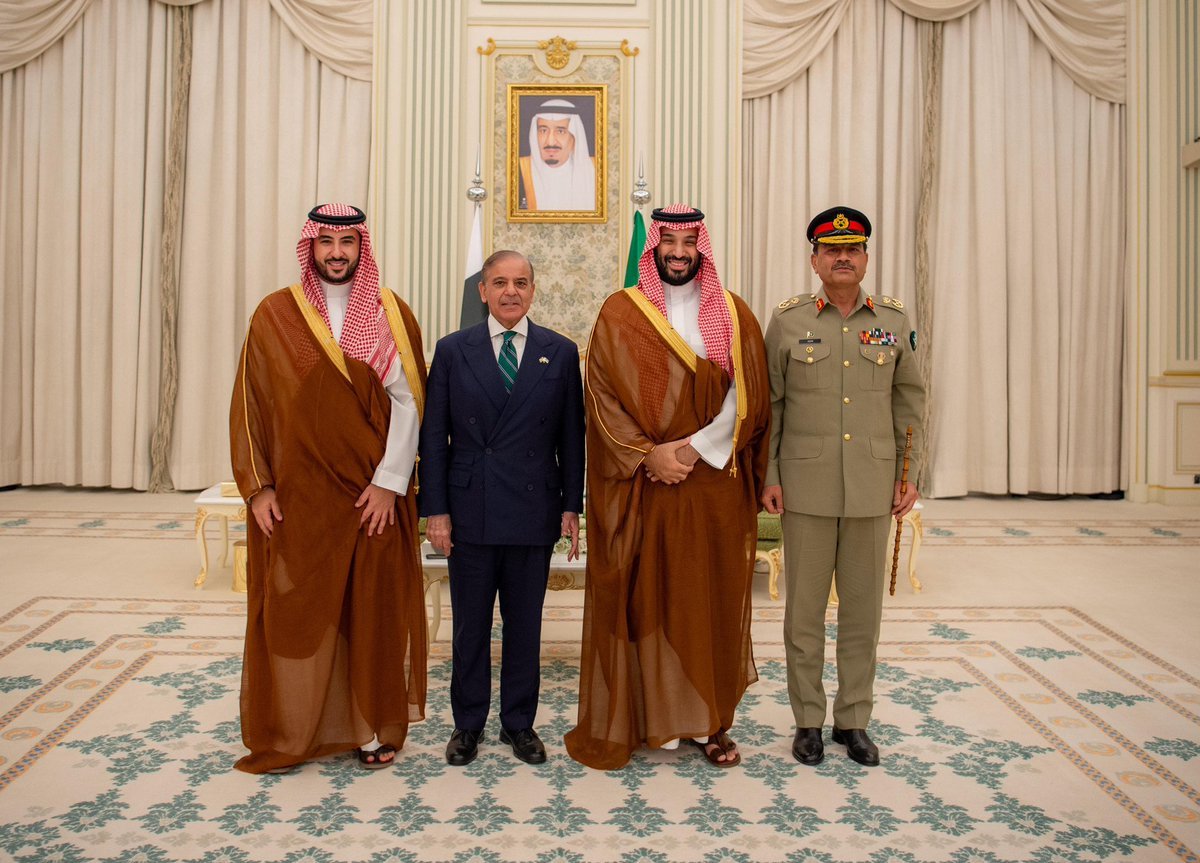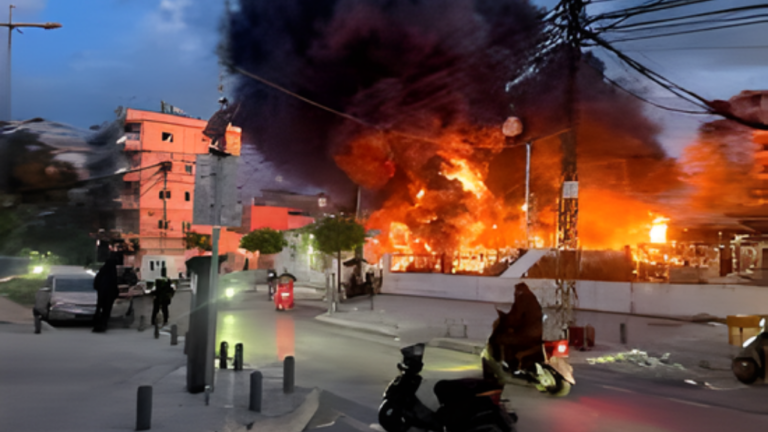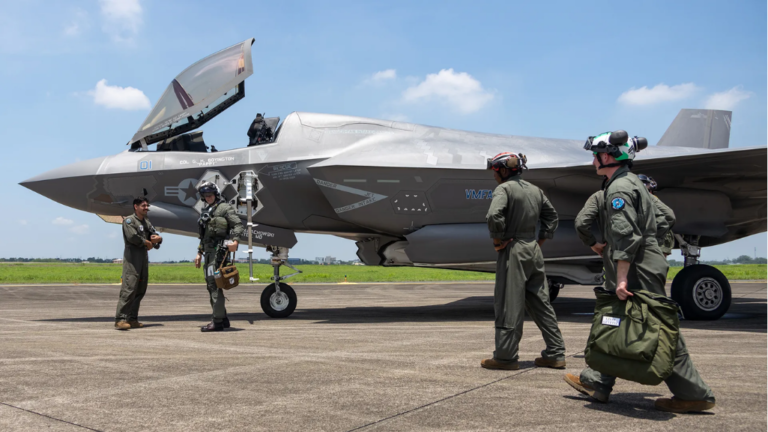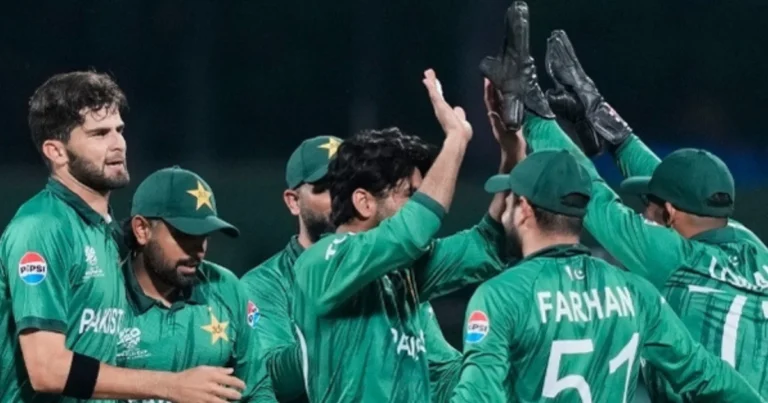
Riyadh/Islamabad – 17 September 2025:
In a major geopolitical development, Pakistan and Saudi Arabia signed a “Strategic Mutual Defense Agreement” on Wednesday, pledging to consider any act of aggression against either nation as an attack on both — effectively signaling a new phase of military and strategic alignment in the region.
The agreement was signed in Riyadh during Prime Minister Shehbaz Sharif’s official state visit to the Kingdom, where he was received by Crown Prince and Prime Minister Mohammed bin Salman (MBS) at the royal Al-Yamamah Palace. The two leaders, along with senior military and cabinet officials, held wide-ranging discussions on regional security, bilateral relations, and shared strategic interests.
Mutual Defense Commitment
According to the joint statement, the agreement reflects the “shared commitment” of both nations to enhance security, promote peace in the region, and deter any external aggression. The statement emphasized:
“The agreement states that any aggression against either country shall be considered an aggression against both.”
Analysis from Senior Pakistani Journalists
Veteran journalist Talat Hussain called the pact a “game-changing combination”:
“Formidable resources meet formidable military competence. This couldn’t have been more timely and more strategic.”
He noted that while Saudi Arabia brings unmatched financial and logistical muscle, Pakistan contributes deep military experience and one of the world’s most battle-hardened armed forces — making this alignment significant for the broader Muslim world.
Ejaz Haider, a leading defense analyst, noted:
“The strategic calculus of the Gulf is shifting. With increasing unpredictability in American commitments and growing threats from non-state actors and regional adversaries, Riyadh is now willing to formalize alliances beyond symbolic gestures — and Pakistan is the natural choice.”
He added that Pakistan has long trained Saudi officers and assisted in securing key infrastructure, but this agreement gives legal and diplomatic cover to that cooperation.
Timing and Regional Implications
The agreement comes less than two weeks after Israeli airstrikes in Doha targeted Hamas officials — raising alarm in Gulf capitals. Analysts believe that this recent spike in hostilities has added urgency to building regional defense frameworks, especially amid uncertainty around US foreign policy in the Middle East.
The Financial Times has already reported that the Riyadh-Islamabad pact is a clear message to the United States and Israel, showing that Saudi Arabia is diversifying its security alliances.
Political commentator Meher Bokhari remarked:
“This is not just a bilateral pact — it’s a pivot. Saudi Arabia is no longer relying solely on the West for protection. Pakistan has emerged as a credible regional defense partner with ideological, cultural, and military synergy.”
A History of Close Ties — Now Formalized
Saudi Arabia and Pakistan have maintained decades-long cooperation in the areas of military training, arms procurement, and joint exercises. More than 2.5 million Pakistanis live and work in the Kingdom, making it one of Pakistan’s largest sources of foreign remittances.
But until now, the relationship was informal and situational. This agreement formalizes the security aspect into a binding commitment — similar to NATO’s Article 5 or traditional defense pacts.
Defense journalist Rauf Klasra wrote in his weekly column:
“This pact is long overdue. It places Pakistan in a unique position where its strategic value is being acknowledged by a major Gulf power at a time when the region is in flux.”
What Comes Next?
While the agreement does not spell out implementation mechanisms, both governments have hinted at deeper cooperation in intelligence sharing, joint defense planning, and military readiness.
Further meetings between defense ministers and chiefs of staff are expected in the coming months to operationalize the pact.
The Pakistan-Saudi Strategic Mutual Defense Agreement marks a milestone in regional geopolitics, particularly for South Asia and the Middle East. In a world of shifting alliances and rising uncertainty, this pact signals strategic convergence between two pivotal Islamic powers — one rich in energy and influence, the other fortified by military expertise and resilience.
Whether this pact leads to a broader Muslim defense bloc remains to be seen. But for now, Islamabad and Riyadh have clearly drawn a new red line: An attack on one, is an attack on both.




